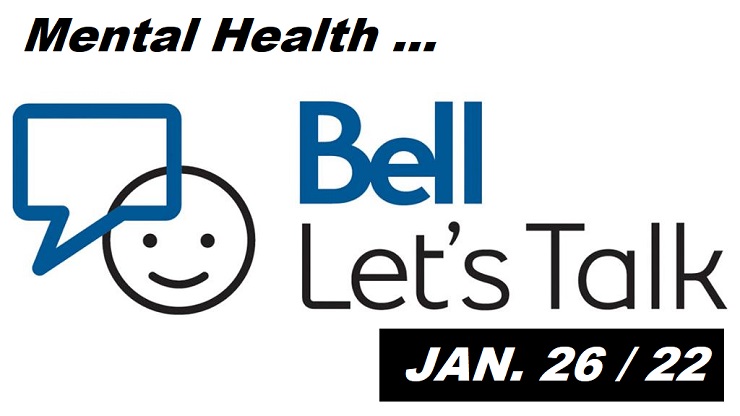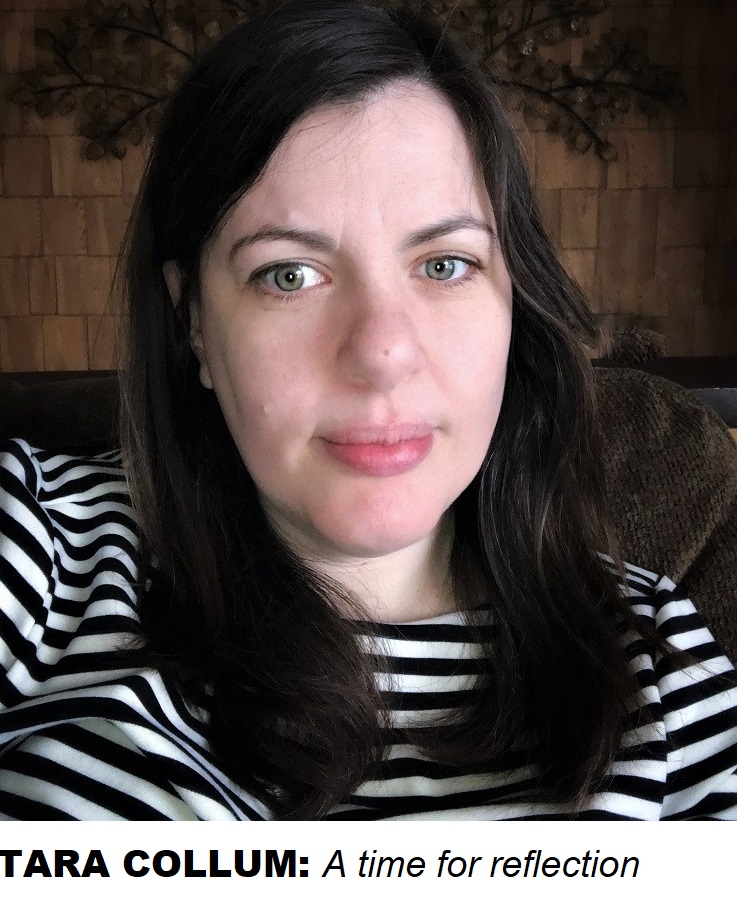COVID GOOD TIME TO TALK THE TALK ABOUT MENTAL HEALTH. WHO YOU GONNA CALL?
TARA COLLUM | Contributing columnist
You want to talk, Bell? Okay, let’s talk.
About how despite a national campaign for mental health, your employees are so stressed out by the high-pressure sales tactics they are ordered to impose on us citizens for fear of reprisals and job loss that they whistle the blew to the government?
Or when we try to upgrade our internet, they neglect to tell us this time the box will be installed on the outside of our house?
All joking aside, even though those things are all true, and they make me furious, you can never get a straight answer about anything when you call Ma Bell. And Canadians pay some of the highest cellphone rates in the world.
It is good of Bell to spread awareness, Jan. 26 this year, and they do contribute to local communities to help improve mental health.
But when Bell stops finding Let’s Talk profitable, and even if they never do, mental health services shouldn’t depend on corporate brand burnishing.
And mental health needs to be talked about every day, not just once a year.
While no longer as stigmatized, those who have mental health struggles face barriers to treatment and many create their own.
Friends and family want to be understanding, but it can be scary when a loved one needs to be hospitalized. And it can be frustrating when someone calls in to work because they can’t face getting out of bed.
Toxic positivity doesn’t help the situation. It’s hard to look on the bright side of clinical depression, and putting pressure on yourself to feel “good vibes only” wont’ help you calm a panic attack.
The brain is just as complicated and mysterious as the body. Who knows what all could be wrong with it? And like your car, or your body, if something feels wrong you should get it checked out when it becomes a problem. Or even before it becomes one.
An ounce of prevention is worth a pound of cure sounds like a musty adage cross-stitched on a pillow, but it’s also true.
If you or a friend or family member feels like they can’t cope; are having thoughts of hurting yourself or others; sleeping too much or too little; if things don’t feel right; or you don’t feel like your usual self, you have many options.
The symptoms are different for everyone, but you know yourself best, and when something feels off, don’t hesitate to get help.
Many forms of therapy in Canada aren’t covered by OHIP, but some are, like if the psychotherapist is also an MD. A family doctor can prescribe medications and also refer you to talk to other professionals who are covered by health care, like a social worker.
If you can’t wait to talk to someone or and are in crisis, it’s OK to go to the ER — even during COVID.
Going to the hospital doesn’t mean you will be admitted. Doctors can adjust medication or refer you to outpatient services, which can only be accessed with a hospital referral.
Even if things don’t feel bad, it doesn’t have to be an emergency to check in on your mental health. We go to the doctor (or should anyway) for regular check ups, and tests, right?
Good mental health doesn’t have to involve medication or professionals.
We can read a self-help book, download a wellness app, or try to meditate, practise mindfulness, or deep breathing. Those activities might seem like a waste of time, or like they aren’t working, but with anything else it takes time and consistency to see results.
Bell’s Let’s Talk day gets people thinking about this issue, and it can be a good time of the year to evaluate where you’re at, and a good reminder to check in on friends and loved ones.

If you are ever feeling overwhelmed or need to talk any time of the year, please don’t hesitate to reach out to someone. There are many free services available online, by phone, and even text.
Who you gonna call?
Here are a few online:
- AbilitiCBT is a free online therapy service in Ontario. After an initial assessment, there are 10 modules to complete on your own, with scheduled check-ins by a therapist.
- Mind Beacon is another free service, and can be completed in 6 to 12 weeks.
- Mood Disorders Association of Ontario offers peer support meetings, as well as one-on-one telephone support. They have regional groups located in Midland and Orillia.
Or call:
- Canadian Mental Health Association Simcoe County, 24-hour crisis service line at 705-728-5044 and 1-888-893-8333
- Hope for Wellness Help line for Indigenous peoples at 1-855-242-3310
- Seniors Safety Line at 1-866-299-1011
Or text:
Kids Help Phone Crisis Text Line Text HOME to 686868

